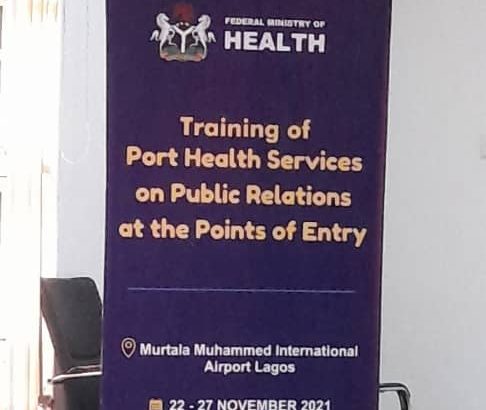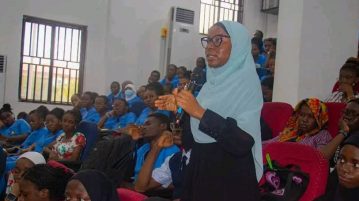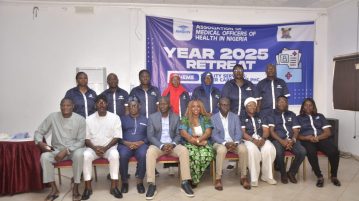On December 12, 2022, the Nigerian Civil Aviation Authority (NCAA) made a heart-warming announcement to the traveling public, stating that COVID-19 (Pre and post) Travel Testing/Vaccination is no longer a requirement for boarding or being allowed passage into Nigeria, and that only a completed health declaration form on the Nigeria International Travel Portal would be required of passengers.
As much as this makes me feel better, I also worry about Nigeria’s pandemic readiness. As this made me reflect on the overall experience and outcome of the entire COVID-19 travel protocol at the airport during the pandemic, which -I must say- ultimately proved problematic, especially for those traveling in and out Nigeria.
Background of the COVID-19 pandemic: What? Who? Where? and Why?
In November 2019, unconfirmed reports of a new illness that was responsible for numerous deaths somewhere in China began to circulate online. However, not many people or nations were aware of it, especially since most people initially ignored photographs pertaining to it on the internet, accrediting them to be expertly manipulated or doctored. Many attributed it to some 5G connections; one president even referred to it as a “Chinese Virus.” However, on December 30th of 2019, the Program for Monitoring Emerging Diseases reported it to the world as “pneumonia with an unknown origin” in Wuhan, China.
Following this declaration, nations began to shut their borders and airspace in January 2020. Nigeria finally followed suit and shut down its two main international airports on March 23, 2020, as the number of verified coronavirus infections increased in the nation from 12 to 22. About the time that all international aviation travel was halted. Since then, researchers have made significant strides in their understanding of the SARS-CoV-2 causal agent, as well as its transmission, pathogenesis, and potential mitigation through the use of vaccines, therapies, and non-pharmaceutical interventions.
The cause of the epidemic turn pandemic still has to be investigated further, as theories of zoonotic spill over and unintentional release from a lab are both still tenable. This is because understanding the origin of COVID-19 is essential for guiding global mitigation of future outbreaks.
Albeit, it has been established that the infective agent – SARS-CoV-2 virus – causes the infectious disease known as coronavirus disease (COVID-19). Furthermore, most infected individuals will only suffer from mild to moderate respiratory illnesses and will recover without the need for special care. However, some people will get serious ill and need some form of hospital and healthcare professional care. These serious illnesses are more likely to happen among the older population and among those with underlying medical disorders such as cancers, diabetes, cardiovascular diseases, or chronic respiratory diseases. Also, the easy transmissibility of the virus made it volatile, because when an infected person speaks, sneezes, sings, or coughs, the virus is spread through their lips or nose in tiny liquid droplets or from close contact.
Nevertheless, COVID-19 can cause anyone to become very ill or eventually die at any age.
At the onset of COVID-19 pandemic: Measures put in place at the point of entry
Globally, scientists predicted that the continent of Africa will be most affected by the disease outbreak. This raised some concerns about how well-prepared we – as a continent and as a country, Nigeria – were before, during, and would be, after the pandemic.
Before the COVID-19 outbreak, Nigeria had recently defeated Ebola – Thanks to Dr. Ameyo Adadevoh’s valiant efforts, who subsequently paid the ultimate price to keep the disease under control. Additionally, contact tracing was a very effective tool for stopping the spread of Ebola in Nigeria. This raised the question of, “what has changed?” and “what lessons – efficiently and effectively used – have been learned since the Ebola outbreak? Sadly, in my opinion and to the best of my knowledge, none. Even worse, the Port Health Services (PHS), which was tasked with inspecting incoming travellers at the Point of Entry (POE), was unready and unequipped for any further outbreaks.
In August 2020, when the Nigerian airspace was reopened after the lockdown, arriving travellers then were only required to complete a few paper forms by the Federal Ministry of Health (FMOH) for primary screening and keeping the records of the passengers, but these forms were frequently incomplete and quickly discarded by an office corner, usually with no further use or reference. Which turned out to be not only ineffective but cumbersome and a waste of resources. One would have anticipated appropriate procedures for passenger data collection and health screening to have been put in place for a nation that has recently avoided a catastrophic Ebola outbreak.
During the heat of COVID-19 Pandemic: Factors affecting the POE effective measures and activities
By the time airspaces were reopened in the country, the majority of the substantially funded point of entry thermal screening devices donated by corporate entities during the Ebola outbreak had begun to gather dust and were mostly inoperable. Hence, few handy thermometers were made available for screening passengers. Also, the Nigeria International Travel Portal, which would eventually become a nightmare for travellers, was introduced.
The launch of the travel portal was a good concept as it was designed to transfer a manual data collection method at the point of entry into an electronic system, making it simple to access passenger data in case of contact tracing and generating statistical data at the time of entry. However, the “Nigerian factor” was quick to ruin this innovation with great intention.
Initially, when the website was first launched, not many people knew about it or were aware of the new travel requirement. This led to incoming passengers becoming irate, with some resorting to verbal and physical abuse on volunteers at the point of entry, when asked to complete the form online at the point of arrival with the port health officials before moving on to other clearance with immigration and customs, following long hours of travel. Also, along with the fact that these incoming passengers were asked to make online payment for a repeat post arrival COVID-19 test, before entering the country. Taking into account that different fees and slightly different process for this testing applies to different states in the country.
Airlines entering the country were as well required by the coordinating agencies – NCDC, NCAA, and FMOH – to not board passengers who haven’t completed the online form and generated the Travel Permit or QR code. Due to “lack of awareness” about the travel regulation and the fact that all websites where information could be found either weren’t updated with the most recent requirements or didn’t contain any information at all aside from graphics and pictures, many inbound passengers soon missed their flights. Likewise, this communication gap between the appropriate agencies and the general public, allowed for swindlers from both domestic and foreign domains to prey on travellers and profit from their misinformation, disinformation or total lack of information.
Even in some certain instances where the passenger had genuinely paid the full amount necessary for the repeat test, numerous fake travel permits were generated for passengers instead. And when they are told that the paper permit they have is not real at the POE by port health officials, they become outraged.
Particularly, arriving passengers from the United Arab Emirates, where the majority of those providing assistance for them at the airport are fellow Nigerians, would pay the full amount out of trust or more particularly due to lack of information, accessibility to the portal, and unwillingness to miss their flights for a sum of #50,900 (the post arrival COVID-19 test fee, which is nothing compared to their airfare). While some people are startled into awareness upon arrival and would verbally attack the port health authorities on duty, others would “grease” any willing officials’ palms in exchange for passage.
Following this, it became extremely difficult to convince arriving travellers to complete the online form after falling victim to scams in their place of origin or country of original departure, because they couldn’t access the Nigeria International Travel Portal from other nations. Many travellers claimed to have attempted to fill out the form several days before their trip, with some even staying up all night to do so, only to be prevented by one error or the other. In some instances, where they are able to access the portal; payments were made but the QR code needed as proof were not generated. While in other instances passengers had their accounts charged twice or three times without a refund or a concrete pathway to dispute the charges and receive a resolution.
It soon became apparent that the QR code has evolved into yet another method of generating revenue with little to no care about passenger testing.
Even after payment has been paid, some laboratories would turn away passengers who are willing to undergo testing, alleging that they did not receive the same payment from the testing process coordinators. This soon subverted the entire process because frequent flyers who ran into problems without a way to solve them quickly turned to the available “fraudulent characters for assistance” because their offer was usually cheaper and simpler to access, thereby completely ignoring the self-isolation and testing process altogether.
Asides the fixated focus on collecting money from passengers for testing, I believe the government wasted a significant opportunity to regain the trust of the populace. Also, largely missed a chance to properly educate the passengers about the novel disease and how to stay safe. For example, giving out leaflets with information on “staying safe and how to do it” to travellers upon their arrival on a credible premise with a functional up-to-date hassle-free registration or payment process, would have had a genuine and greater impact, because of the higher tendency that they would naturally be inclined to read and assimilate the content on the leaflet as a necessity rather than feeling coerced to test and separate themselves.
At the surge of COVID-19 Pandemic: Shakedown of the isolation protocol for passengers from Red List Countries
The month of April in 2021 became the most terrific. As India reported more than 300,000 cases of COVID-19 in 10 days straight, more than 100,000 lives lost to the disease in Brazil, while Turkey recorded 37,674 new cases and 339 deaths under 24hours. This led to the Federal Ministry of Health (FMOH) banning all persons coming from India, Brazil and Turkey, later to include South Africa – as the red list alert countries. Nevertheless, this restriction was swiftly finetuned into a compulsory 7-days isolation of all inbound passengers from these countries at the isolation centre in Infectious Diseases Hospital (IDH), Yaba. However, some Nigerians being “typical Nigerians”, bastardised these relatively free isolation provision by the government leading to an overturn, and only allowing those who are ready to pay an estimated hefty sum for their isolation and testing (on the second- and seventh-day post arrival) enter into the country.
A minimum fee of #500,000 (five hundred thousand naira) was levied, with a potential maximum fee of #1,000,000 (one million naira) per passenger, depending on the “selected hotel” for the isolation period. To ensure compliance, the international passports of the passengers were seized before allowing them enter into the country.
However, one must be aware of the shortcomings in the regulation governing this isolation. Regardless of their relationship, partners are not permitted to share a room during the seven days of seclusion, even if they are ready to pay more for a larger room. As a result, people began lobbying for exceptions to the regulations with hotels and officers in charge of isolation. Even allowing them to self-isolate in their own comfort while being monitored, as maintaining a separate existence was difficult for couples. An Indian friend bemoaned bitterly how the law doesn’t take his culture into account. Another stated that after paying for both him and his wife, he was told that only his wife’s payment had been received and that he would have to pay again even when he presented all receipts.
These (lack of awareness) situations and regulation was same for passengers from South Africa, Turkey, and Brazil. Not to mention that many of these passengers (mostly Nigerians) refused to be isolated or pay to be isolated, and some managed to elude the port health officials and immigration officers while the Airport Security Officers (AVSEC) would abstain and claim they were not involved in the isolation procedure.
This, on one hand exposes the lack of synergy, partnership or sense of joint responsibility on the part of entire airport officials towards the COVID-19 regulation, isolation protocol or pandemic control as a whole.
Also, as much as some passengers prefer to pay that much to be isolated in a facility chosen by the government, others don’t mind temporarily giving up their passports because they are confident that they will be able to get them back – for the right price with the right connection, when they are ready. Were they correct in their claim? Your assumption is accurate, I suppose. This leaves one to wonder what would have happened if an infected person had to force his way past airport security and into the neighbourhood, out of the sense of entitlement; “me! isolate in my father’s land?!”
Combating the COVID-19 Pandemic: The State of Funding and Volunteering at the POE
One of the crucial points of note is how underfunded the entire pandemic response at the point of entry was in Nigeria. Beyond providing the necessary means and funding to safeguard the nation’s (health) security and tackle the novel disease: The entire response was essentially anchored or seemingly reduced to a means of making money. Health volunteers were left to protect themselves however they saw fit, even if that meant donning facemasks made of Ankara fabrics, at a time when other nations in the world were providing personal protective equipment (PPE) for frontline workers. Facemasks and gloves were minced and had to be re-used most of the time because they were frequently counted and eventually no longer provided. In addition, no testing was done for health officials and volunteers at the POE. Leaving many of them exposed with even majority of them developing the disease “unknowingly”, and requiring them to take some time off work to stay home and treat their presenting COVID symptoms by themselves.
Likewise, as soon as the situation improved and normalcy started to return to the world, many of these volunteers were relieved of their duties unceremoniously and replaced with said “relatives and acquaintances” of those in authority. Leaving those who sacrificed at the frontline -when the going got tough and no one knew the true impact or the extent to which the novel virus spread- with little or no benefit. The dismissals of these volunteers were done without prior notice; based on flimsy excuses and in most cases, without any reason at all.
If there were to be another breakout of disease, I wonder if anyone would be so eager to risk their lives again by volunteering to guard the border of the country. Well, the striking unemployment and poverty rate in the country may say otherwise, as people would jump at “any opportunity of survival” that comes their way… but what do I know?
Beyond the COVID-19 Pandemic: How prepared are we for other outbreaks?
As much as one might want to claim that the pandemic is over, this is untrue because many nations today still continue to struggle with the daily challenges of new cases of mutation, lingering effects of old cases and deaths from COVID-19. While some nations have closed their borders to citizens of certain countries or, in some cases, are subjecting them to proper screening procedures at the POE. Thus, we shouldn’t take our victory for granted.
Furthermore, despite the fact that Nigeria was not significantly affected by the pandemic as compared to other nations; it is almost impossible to link this to the way the pandemic was handled at the POE. Notwithstanding, we must acknowledge our success on this. I, however, personally attribute it to grace—not the actualization of our strategic plans or outcome of our defective works—because Nigeria has survived two fatal pandemics with relatively fewer losses, in spite of our severe lapses and shortcomings, which—I believe—proves that God must truly love this country.
Nevertheless, another pandemic would likely occur soon—possibly in another 5, 10, or 15 years—How prepared as a nation would we be by then? Are we going to rely on “grace” once more? or would we learn from our mistakes and be ready in case it happens again?
Editor’s note:
This article is a recount of experiences and activities at the Port Heath Services Point of Entry collated from volunteers for the COVID-19 pandemic response between Oct 2020 and May 2022 at the POE, Muritala Muhammed International Airport Lagos under the PHS, FMOH.
About Author:
Emmanuel Olaniyan is a public health researcher, data analyst and health systems strengthening advocate, who sits at the intersect of good health governance, public health polices and good health outcomes.




